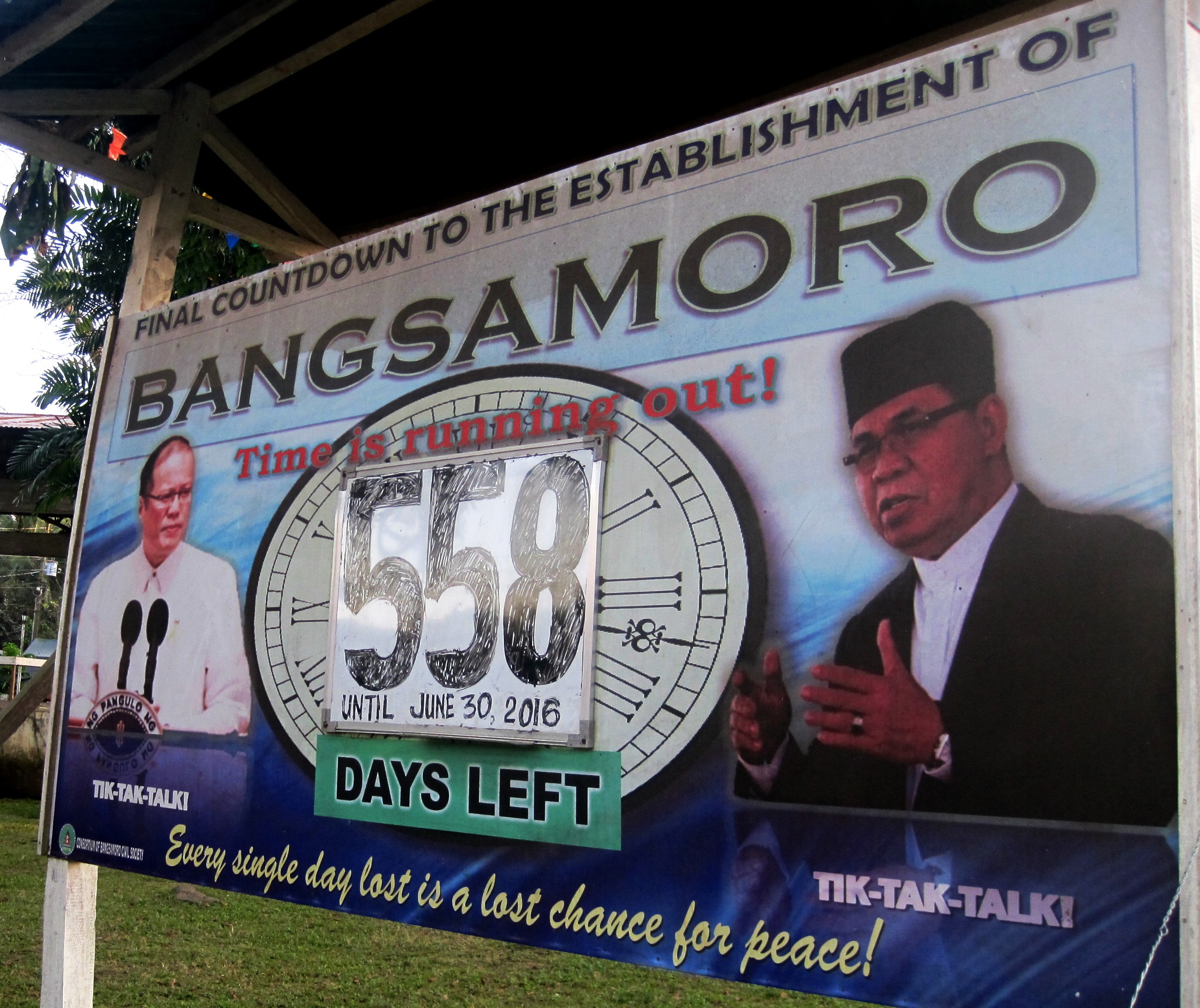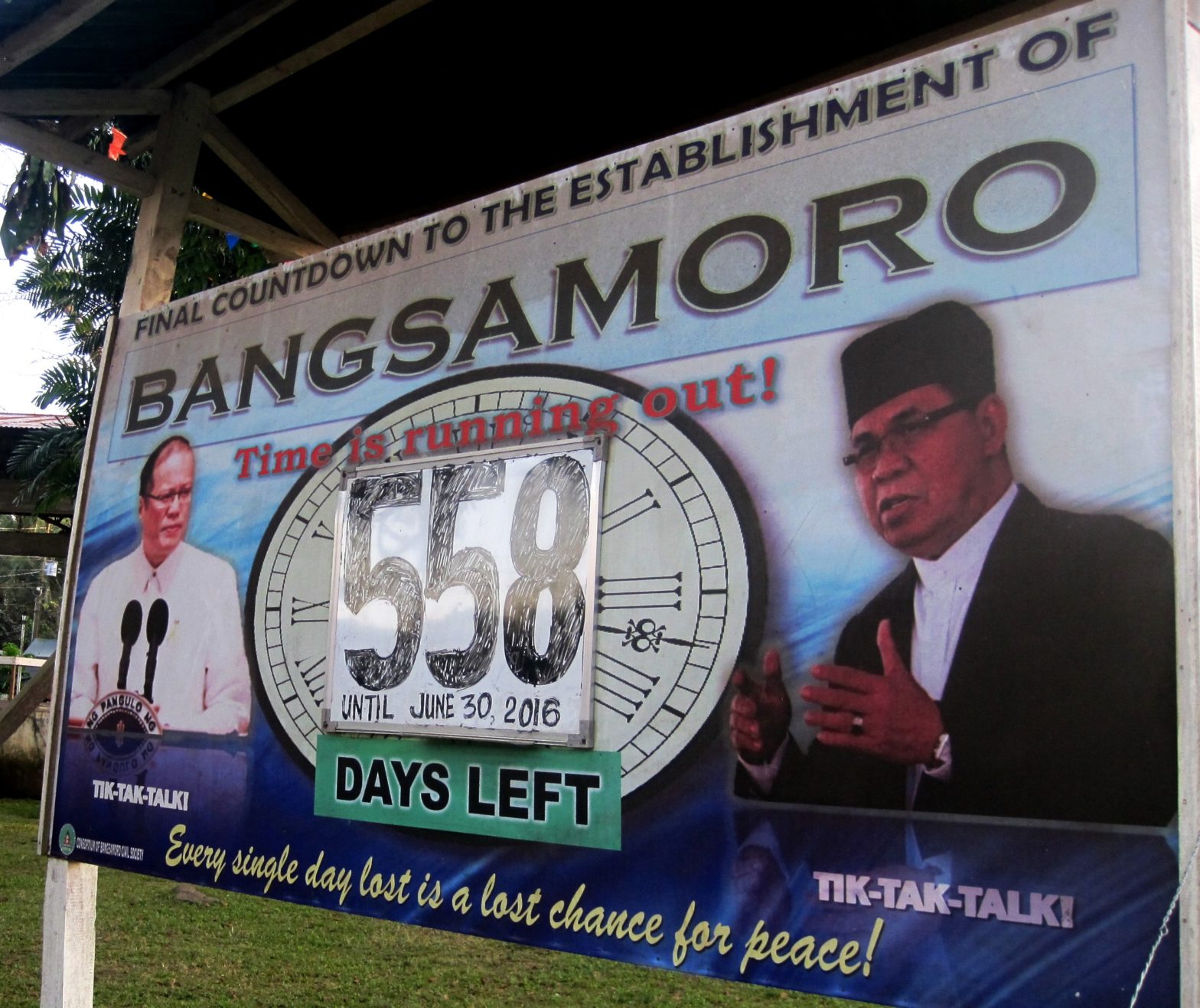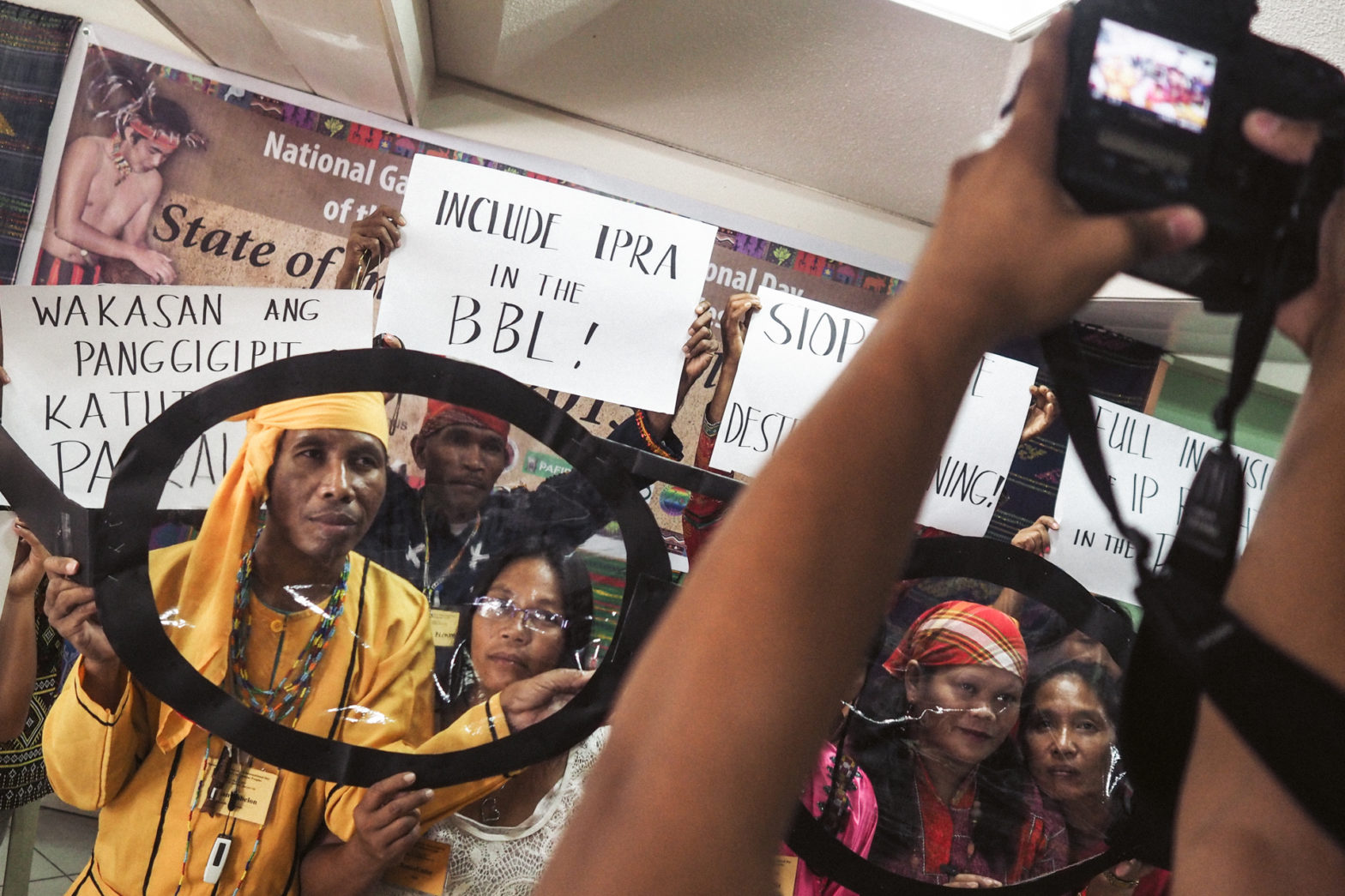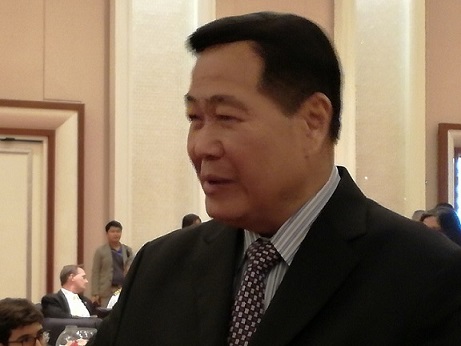
By JAKE SORIANO
FOR a time during the presidency of Benigno Simeon Aquino III, it seemed peace in Mindanao was finally within grasp.
On Oct. 5, 2012, the Government of the Philippines (GPH) and the Moro Islamic Liberation Front (MILF) signed the Framework Agreement on the Bangsamoro (FAB).
A crucial guiding document in the peace process, the FAB paves the way for the creation of a new political entity in the country’s restive south, the Bangsamoro.
It would replace the existing Autonomous Region in Muslim Mindanao (ARMM), a “failed experiment,” the president had said.
Months later, on March 27, 2014, the Comprehensive Agreement on the Bangsamoro (CAB) was signed, an ostensibly final peace deal ending 17 years of negotiations.
These count among the highest points of the Aquino years.
Yet, he ends his term in June not with a bang but a whimper.
Congress adjourned in February this year without passing the crucial piece of legislation that would create the Bangsamoro and abolish the ARMM.
What went wrong
It is common view now that things fell apart the morning of Jan. 25, 2015.
An encounter in a cornfield in the Maguindanao town of Mamasapano left dead 44 members of the Philippine National Police Special Armed Forces (PNP-SAF), 18 members of MILF and five civilians.
The PNP-SAF members were out to capture wanted terrorists Marwan and Basit Usman.
To a certain extent, Mamasapano significantly altered the course of the peace process.
But the failure to legally enact the FAB and the CAB is a reflection overall of broader systemic problems in how the Philippine government works.
“Kinks in the legislative process” contributed to the non-passage of a Bangsamoro law during Aquino’s term, said GPH chief peace negotiator Miriam Coronel-Ferrer, in a conference presentation Monday.
It was the President himself who transmitted to Congress a draft of the Bangsamoro Basic Law (BBL) in September 2014.
Its version in the Senate, SB No. 2408, was referred to the committee on local government, a move that would prove consequential to the bill’s fate there.
A total of 15 committee hearings were held until June 2015, taking place in the Senate premises in Pasay City, as well as in Cotabato City, Marawi, Tawi-Tawi, Jolo and Zamboanga City.
SB No. 2408 was substituted in August 2015 by SB No. 2894, sponsored by Sen. Ferdinand “Bongbong” Marcos.
In this version, BBL became the Basic Law for the Bangsamoro Autonomous Region (BLBAR).
More than the name change, BLBAR contained severe amendments, including a modified definition of Bangsamoro identity.
The Office of the Presidential Adviser on the Peace Process (OPAPP) called BLBAR unconstitutional, which it said would “take away powers and functions already granted to the existing ARMM.”
The bill would reduce the Bangsamoro government “to an entity akin to an ordinary local government unit,” it said, defeating the purpose of autonomy.
OPAPP instead called for the passage of the BBL, not BLBAR.
Problem with the Senate
Coronel-Ferrer, in the same presentation, said the peace panel faced the difficulty of having a Senate sponsor who they could no longer support, and who in turn did not ask for theirs.
But what ultimately halted the progress of the bill in Senate was a seemingly extraneous event.
Sen. Juan Ponce Enrile, detained for alleged involvement in a massive “pork barrel” racket, was released on bail.
It was Enrile who in December 2015 asked a procedural question, Was the Bangsamoro bill a local bill, having been referred to the committee on local government?
If so, then the Senate must wait for the House of Representatives version of the bill, he said.
The Senate office checked, and it turned out that indeed, that was how earlier autonomy laws were done.
No formal ruling was made, but nothing more happened after this, said Coronel-Ferrer.
A question of quorum
In the House, meanwhile, it was a longer story for BBL albeit with the same ending.
The draft transmitted by Aquino was sponsored as HB 4994, and referred to the Ad Hoc Committee on the Bangsamoro Basic Law, chaired by Cagayan de Oro 2nd District Rep. Rufus Rodriguez.
The House committee held 41 meetings overall, including in cities outside Mindanao like Laoag, Baguio, Cebu and Iloilo.
HB 4994 was later substituted by HB 5811, the version of the Ad Hoc committee, which revised key phrases that have significant implications on Bangsamoro autonomy.
Notably, the bill enhanced provisions on women, as well as indigenous peoples, said Coronel-Ferrer.
Plenary interpellations began in June and concluded in December 2015.
Absenteeism in the House was the obstacle the bill, not unlike many others before it, could not hurdle.
From January to February 2016, the turno and contra period, 53 representatives were absent four times, said Coronel-Ferrer.
And, she added, there were House members like Buhay Rep. Lito Atienza who were present all the time, but to question the quorum.
The House of Representatives was where President Aquino could have wielded his influence, which to be fair, he did, or at least seemed to try to.
Reduced presidential leverage
But the President, who urged Congress to pass the BBL in his last State of the Nation Address (SONA), was not the same president he was years earlier.
Aquino’s presidential leverage in the legislative branch had been greatly diminished when the Supreme Court declared unconstitutional the Priority Development Assistance Fund (PDAF) in 2013 and the Disbursement Acceleration Program (DAP) in 2014.
The BBL lobby, said Coronel-Ferrer, unlike those for similarly unsuccessful bills like freedom of information, has the advantage of having a dedicated government office, the OPAPP, and also the peace panel and the transition commission.
Civil society organizations who pushed for passage of BBL were backed by international donors.
“We did everything,” the chief negotiator said, but added that ultimately, there remains the great divide between the consciousness of the Filipino majority and the aspirations of the Bangsamoro minority.
Challenges in the 17th Congress
Looking forward onto the next administration, she said the important issues the panel needs to discuss with its MILF counterpart range from what specific bill to refile, to strategies on how to play out sticky issues like constitutional change.
“The longer it takes, the more unstable it could be,” Coronel-Ferrer said.
Particularly the House of Representatives would remain a challenge, as its composition would virtually remain unchanged.
That is where support from the next president of the republic is crucial, she said.
The life and frustrating death of the BBL in the 16th Congress was not without its breakthroughs.
Although reluctantly, the MILF entered the terrain of congressional lobby work, said Coronel-Ferrer. Moro civil society groups also gained skills on the legislative process.
“This experience has steeled them for the next stage of congressional battle in the 17th Congress, that is, if we are able to hold the fort and prevent total disillusionment,” she said.


